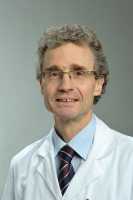21 Oct Health Counseling of Seniors Can Extend Lives
MedicalResearch.com Interview with:
Prof. Dr. med. Andreas Stuck
Chefarzt Geriatrie
Geriatrische Universitätsklinik
Inselspital, Bern
Medical Research: What is the background for this study?
Prof. Stuck: The number of older persons increases worldwide. Unfortunately, many older persons cannot enjoy the benefits of increased life expectancy because they develop disability or die prematurely. In the search for an effective preventive method, we developed a novel intervention consisting of health risk assessment combined with individualized health counseling, and tested whether this novel intervention actually works. In a trial among more than 2000 older persons, we allocated persons randomly to a group receiving and a group not receiving this intervention, and compared long-term outcomes between these groups.
Medical Research: What are the main findings?
Prof. Stuck: We found that older participants who received the novel intervention, improved their risk factor profile, and subsequently, had a significantly improved survival as compared to the participants who had not received the intervention. From earlier studies it was known that health risk assessment can improve short term health risks in older people, but our study is the first to explore long-term health outcomes.
Medical Research: What should clinicians and patients take away from your report?
Prof. Stuck: It is not too late to start prevention after the age of 65 years! However, as shown in this study, these favorable effects were likely related to some key characteristics of the intervention.
First, it was based on a personal health risk assessment covering the multiple potential risk factors relevant in old age.
Second, participants did not only receive a risk factor profile, but also individualized feed-back and health counseling.
Finally, the intervention lasted two years, with repeat assessments and follow-up counseling, to further optimize risk factor modification.
Thus, prevention in old age is likely effective, but only if risk assessment is combined with intense individualized counseling.
Medical Research: What recommendations do you have for future research as a result of this study?
Prof. Stuck: Future research might help to further refine the assessment instruments used for the various risk factor domains, and to improve the understanding of how each of these risk factors is best addressed. Also, future studies might evaluate the effects of health risk assessment in other geographic regions, analyze its effects on other outcomes, and optimize its cost-effectiveness by developing optimized or alternate methods of health risk assessment and health counseling.
Citation:
[wysija_form id=”5″]
Prof. Dr. med. Andreas Stuck (2015). Health Counseling of Seniors Can Extend Lives MedicalResearch.com
Last Updated on October 21, 2015 by Marie Benz MD FAAD

